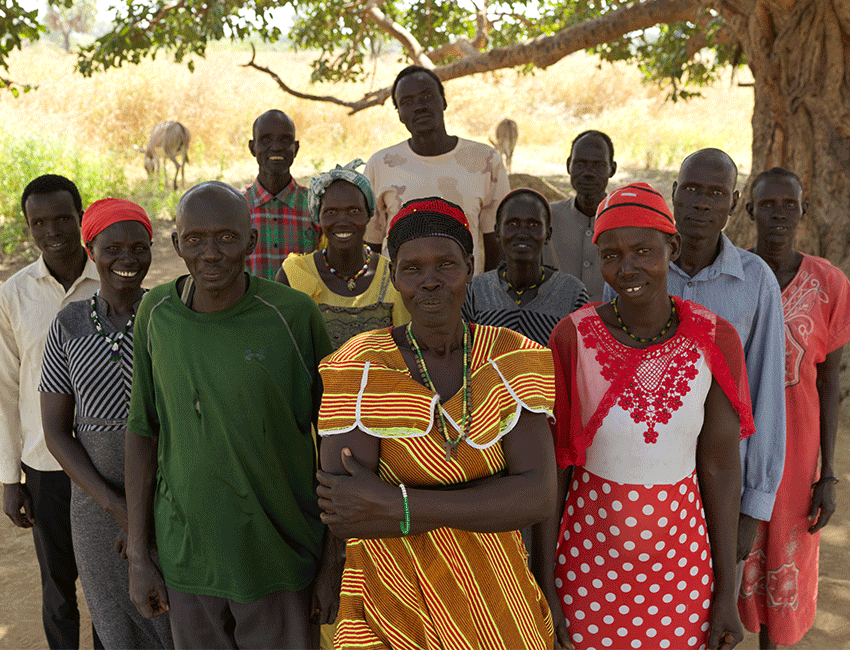Nyanut lives in Baackuel village, South Sudan. She’s passionate about seeing change in her village and wants to make sure families have safe access to water. Nyanut is inspiring other members of the community to join her in transforming their village and has been elected as the first water committee leader. She’s been trusted to manage and maintain their new clean water source – a borehole built by Action Against Hunger.
Located in Malualkon — a region known for its intense heat — Nyanut’s village is home to around 1,500 people who live far from any healthcare or other civil services. Maize and sorghum crops dominate the landscape and the community depends heavily on rainfall to water their crops.
Before the borehole was installed, water was a daily concern for the people of Baackuel. They would often have to make a long and difficult journey to the nearest village to access clean water.
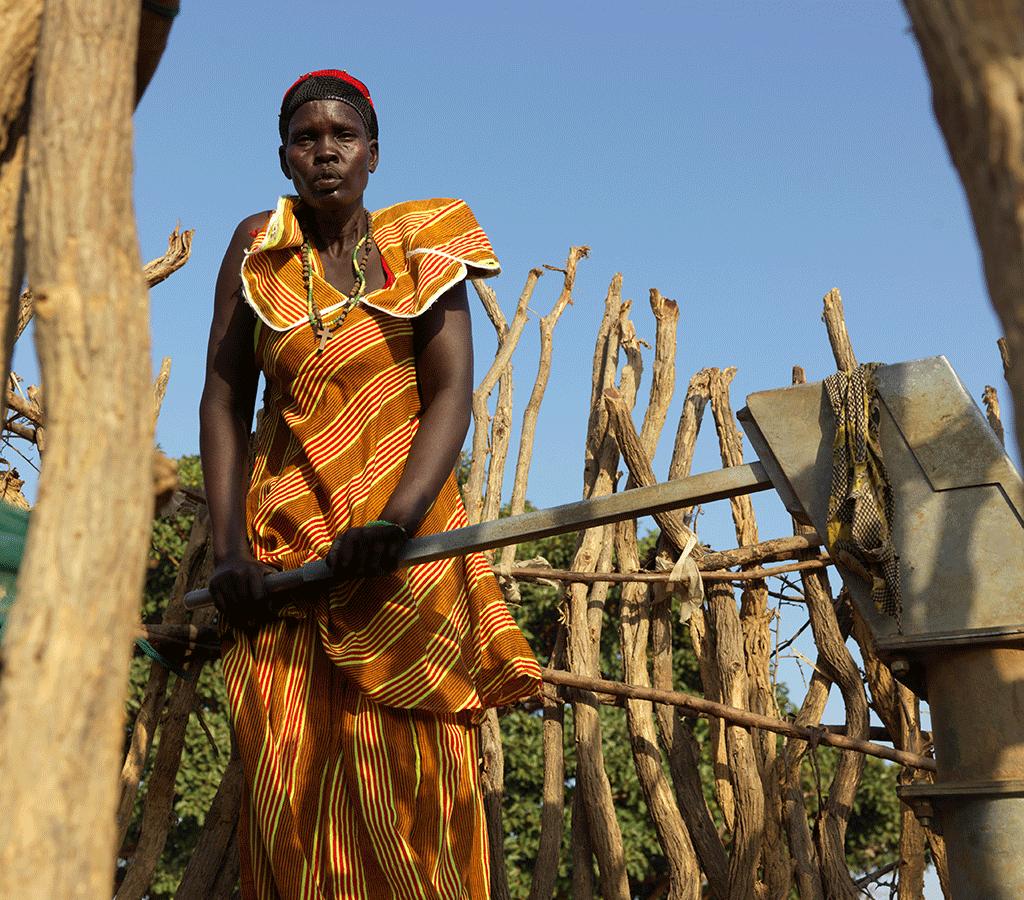
“I used to be ready at 6am to walk with my donkeys to fetch water,” explains Nyanut. “I went every day and I travelled for seven hours on foot as my donkeys carried the water on our way back. Sometimes my children would come and help me, but mostly I went alone.”
The water Nyanut gathered only provided enough for one day. This meant Nyanut had to make the same journey every day to replenish their supply.
“You would go thirsty and your children would feel sick if you didn’t travel to the borehole every day. It was a very hard life.”
The difference clean water makes
In September, Action Against Hunger drilled the first-ever borehole in Baackuel. Within a few months, the village and the lives of the people living there have transformed.
A committee of five women and five men now maintains the village’s new water source. Our teams trained the members in hygiene, sanitation and water management. A few months later, there’s been an incredible improvement in the health of the people living in the village.
“We have seen many changes,” explains Nyanut. “We teach people how to build a latrine, then how to maintain hygiene in your own house and how to teach other people about this. When we hold a meeting with the community, we don’t only talk about water management. We also tell them the importance of a latrine and hygiene.”
New health practices are changing the landscape of the village. More and more families follow Nyanut and the water committee’s lead. Using local materials, we’ve trained the water committee to build latrines for their homes with their own hands.
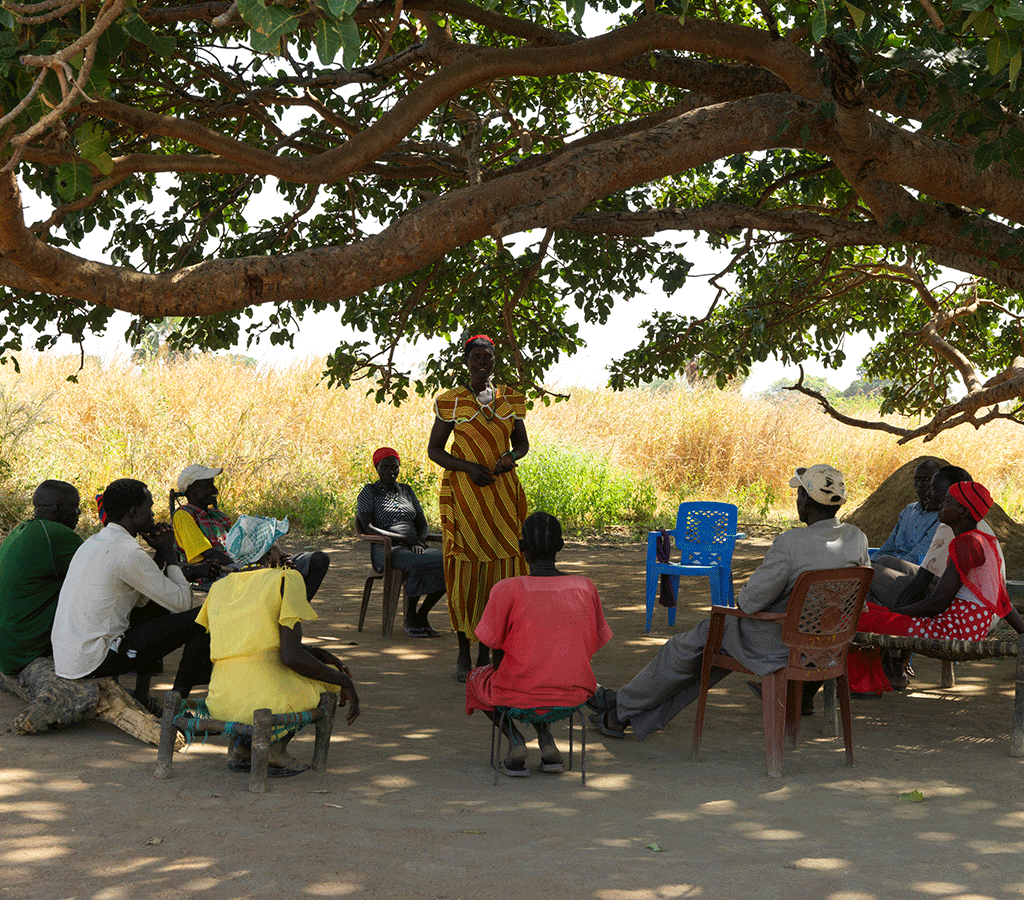
Nyanut and the water committee share everything they learn with the community. They also explain the health and safety benefits of building latrines at home.
“Open defecation in the bush can be dangerous because you can step on a snake or you can be in danger of wild animals like hyenas at night,” she says.
Nyanut was the first person in the village to build a latrine. She’s a great example for the people in her community, who are motivated by her efforts. A sense of pride runs through the village, with some even decorating their latrines to show them off. Nyanut has encouraged other women in the village to build the latrines and they’re now hoping to see Baackuel declared open defecation free.
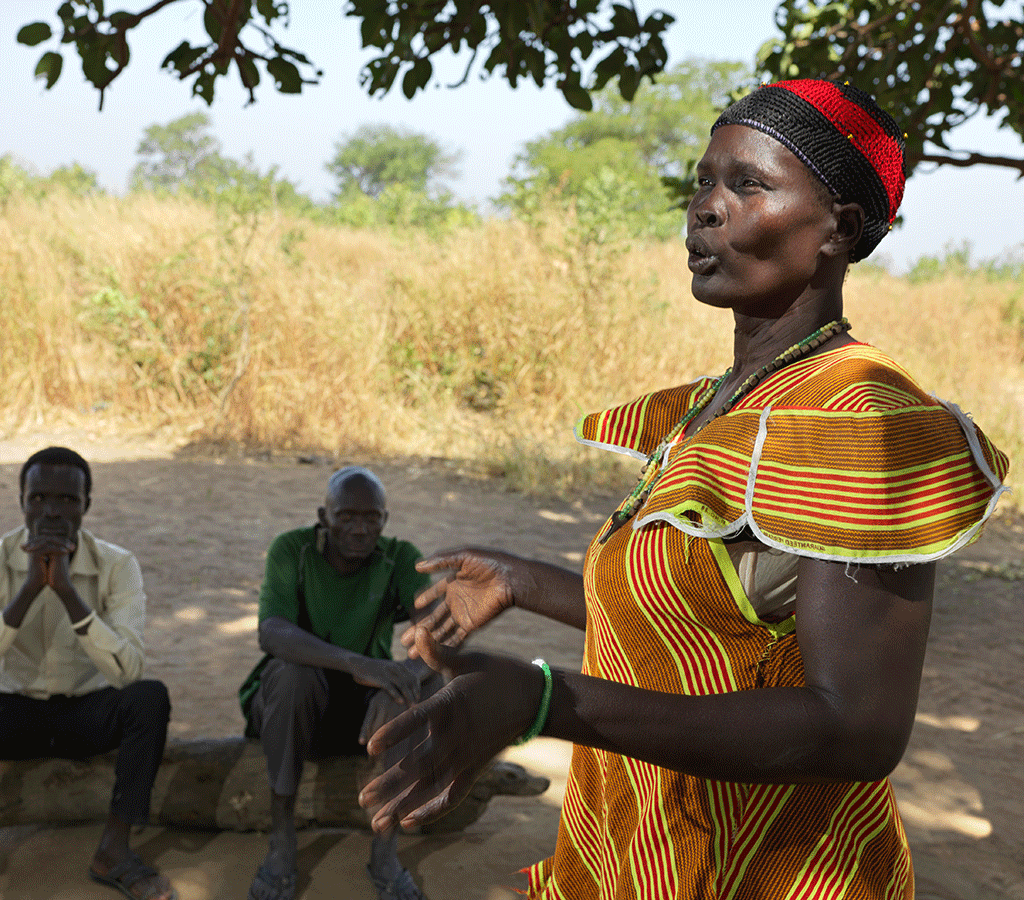
An inspiring woman leading her community
Nyanut is proud of how much the community trusts her skills. After being selected to join the committee, she was elected as treasurer and chairperson.
“I keep the money collected from the community for the maintenance of the borehole,” says Nyanut.
“People trust me, I’m always hardworking. When people ask if something can be done or if something is needed in the community, I always offer myself. That is why they selected me to be a leader.”
Every family in the village helps to take care of the borehole, making the community feel responsible for their water supply. If the borehole needs repairs, Nyanut has the budget ready to buy spare parts or hire a mechanic.
“My work is to mobilise people. When we need a meeting – like when the community has to be informed that there is a need to contribute money to repair the borehole when it breaks down – I’m the one who calls the meeting,” says Nyanut.
Managing the money guarantees the community’s access to water and is a huge responsibility in the village – trust is key. Yet even with the contributions gathered for the repair, sometimes there is no mechanic available or anyone willing to travel to the village.
“On those days the community goes thirsty, but if there was training available for learning how to repair a borehole, I would be very happy to learn,” says Nyanut. “I would be able to repair the borehole with my own hands and we could save that money for the community.”
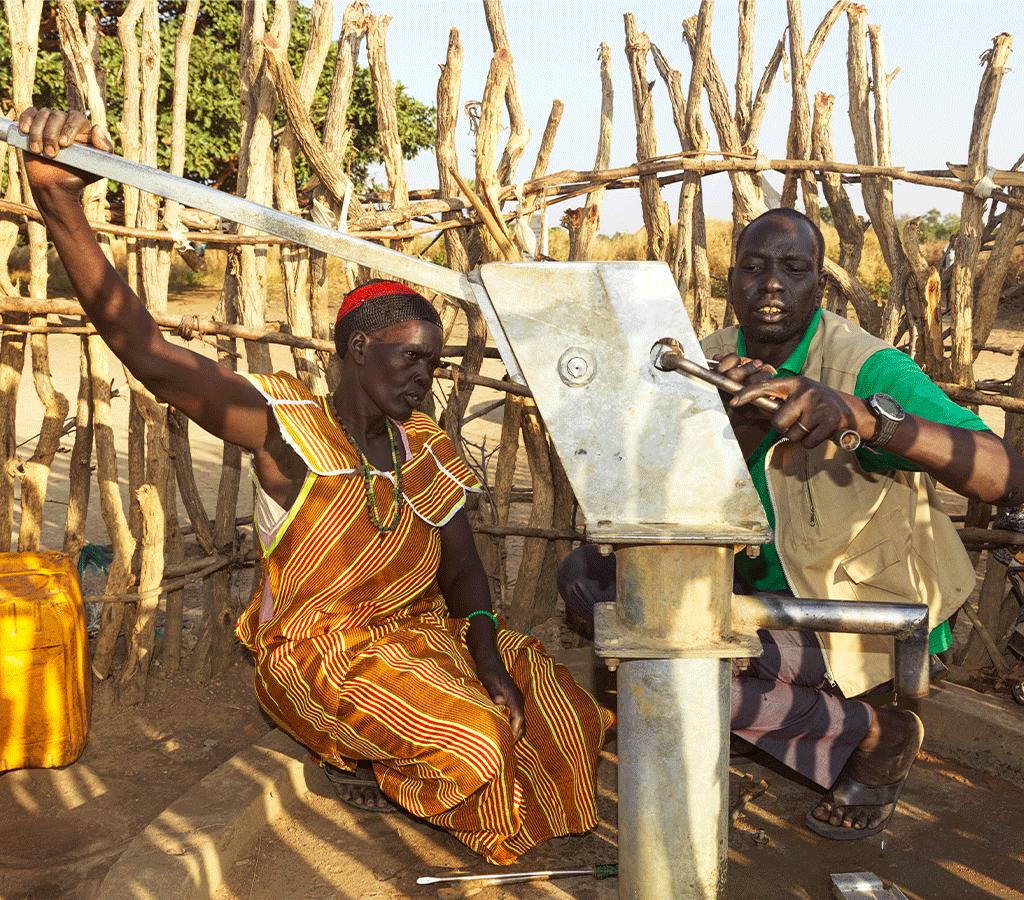
Typically the committee chair would be a position held by a man, but Nyanut wanted to change this tradition. She’s inspiring the next generation to think differently about gender roles too. Girls in the village want to follow in Nyanut’s footsteps. They say they hope to become the committee chairperson someday.
“People see me with a lot of respect, when I call for a meeting they come on time and listen,” says Nyanut. “The people are happy with my work and I hope that when the girls grow up and marry they will hold this position on the committee.”
Nyanut and other women from Baackuel are changing their communities for the better. Now they don’t just care for their own children, but they’re also committed to improving the health of their entire community.
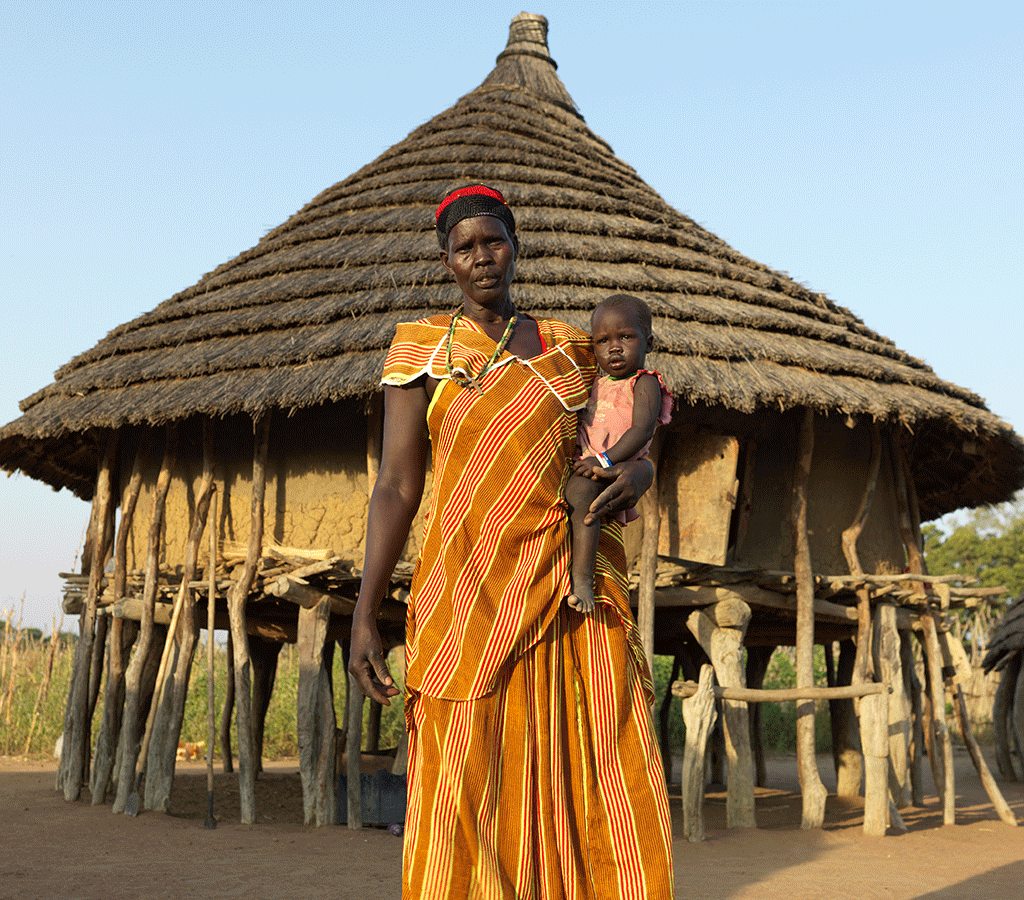
Nyanut is transforming the way people live in this village, but she still has bigger dreams for her community.
“If the entire community listens to the hygiene messages we give them as water committee, we are going to change in the years to come,” she explains. “We will not remain like this. Now we’re building our latrines using local materials and, if we continue like this, we will change even more. This is my dream for the community.”
Photo credits: Action Against Hunger/ Peter Caton

